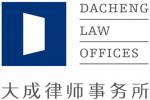In the rulings mentioned in last month’s column, even if there was no problem to finding that an insurance contract relationship had been established, and that the liability exemption clauses had not entered into effect, rendering a judgment ordering the insurance company to pay indemnities nevertheless lacked a legal basis and was unreasonable.

Partner
Dacheng Law Offices
First, whether the event that caused the loss is an insured event is the basic factual issue of an insurance claim dispute case, otherwise there is no place to begin the discussion of the insurer’s scope of insurance liability. From either article 2 of the Insurance Law or the perspective of contractual philosophy it can be seen that the precondition to an insurer bearing insurance liability should be that “the event is specified in the contract”. In this case, the court should have first ascertained the contractual specification of the scope of insured events, and only provided that it determined that such event fell within the specified scope, it should then examine the validity of clauses that exempt the insurer from liability.
Fundamental differences
Second, the clauses describing the scope of insurance liability are fundamentally different from the clauses that exempt the insurer from liability, and the legal provisions applicable to determining their validity are also different. The first paragraph of article 9 of the second judicial interpretations of the Insurance Law provides as follows: “The clauses in a standard contract provided by the insurer that exempt it from, or reduce, its liability, such as liability exemption clauses, deductibles, franchise, pro rata settlement or benefit, etc., may be found to be ‘clauses that exempt the insurer from liability’ as specified in the second paragraph of article 17 of the Insurance Law.”
Even if clauses describing the scope of insured events mostly can be reduced to “standard contract terms”, pursuant to the law, defects in the validity of “standard contract terms” other than “clauses that exempt the insurer from liability” cannot arise by virtue of whether the proposer was aware of such terms, or whether the insurer explained them to him or her. As standard contract terms, provisions on insured events may, at most, based on the “adverse interpretation principle”, be interpreted in a manner that is unfavourable to the insurer if such terms are unclear or open to more than one interpretation. However, this interpretation principle is fundamentally different from handling that denies validity. In the above-mentioned case, the authors cannot agree with the court’s handling of it by neither investigating nor determining the insured event, nor interpreting the insured event clauses.
Third, the limits on the validity of clauses that exempt the insurer from liability may not be arbitrarily expanded into clauses that assign insurance liability. The insurance law theory perspective determines that losses falling within the scope of the insured events give rise to the scope of liability for insurance claims.
A so-called clause that assigns insurance liability specifies the conditions under which, and the extent of, the liability for insurance claims bearable by the insurer. In the main, these conditions and extent are intimately connected with the provisions on insured events. In the absence of counter provisions, so long as a loss is caused by an insured event, it should fall within the scope of liability for an insurance claim.

Lawyer
Dacheng Law Offices
Due to the fact that in numerous circumstances insurers are not willing to bear claim liability for all losses incurred as the result of insured events, this has given rise to specially stipulated, so-called “clauses that exempt the insurer from liability”. Considering that the insurer is the provider of the standard insurance contract terms and the proposer is in a weak position when entering into a contract, legislators have put in place in the law a “system that limits the validity of clauses that exempt the insurer from liability” in order to balance the interests of the parties to the contract.
Limits on validity
However, it should be noted that the above-mentioned limits on validity should be strictly limited within the scope of the “clauses that exempt the insurer from liability”. If the validity of the liability assignment clauses is denied, then a paradox will arise: if no liability assignment clauses are valid, how can one even begin to consider the invalidity or non-entry into effect of the liability exemption clauses?
Finally, where an insurance contract relationship has been established, completely leaving aside the scope of insurance liability and settlement conditions in the insurance contract and directly rendering a judgment ordering the insurer to indemnify the losses runs counter to the contractual spirit of insurance contracts. The authors are of the opinion that judges’ rulings in similar cases reflect a lack of examination of the contents of insurance contracts in judicial practice and an overemphasis on the standardised nature of insurance contract terms.
Although there is no legal basis for the invalidation of standard clauses, the same has nevertheless become the mindset among judges, greatly reducing the proposer’s duty of care when entering into an insurance contract, and artificially expanding insurers’ settlement liability. The insurance companies resolved these cases by producing evidence gathered at the contracting stage by using more stylised and utilitarian methods.
Meanwhile, proposers incline to readily run counter to good faith by making use of the loopholes in the preservation of evidence relating to the delivery of policies, or performance of the explanation obligation by insurers, to pass all kinds of losses onto insurance companies when claim disputes arise. For the entire insurance industry, if a large number of such unexpected losses arise, ultimately some insurance companies will pass the costs of such losses onto the public by increasing insurance premiums, making the entire industry less efficient and uneconomical.
In conclusion, in judicial practice, the insured may have been beneficiaries of excessive protection and, to a certain degree, insurers have become the weaker party. The law has, in respect of the interests of proposers and the insured, already put the necessary system arrangements in place in legislation; in individual cases, the interests of parties can be balanced only by the strict and compliant application of the law and the avoidance of overcorrection.
Xu Dang is a partner and Luo Huichao is a lawyer at Dacheng Law Offices in Beijing
7/F, Building D, 9 Dongdaqiao Road
Chaoyang District, Beijing 100020, China
Tel: +86 10 5813 7799
Fax: +86 10 5813 7788
E-mail: dang.xu@dachengnet.com
huichao.luo@dachenglaw.com
www.dachenglaw.com





















